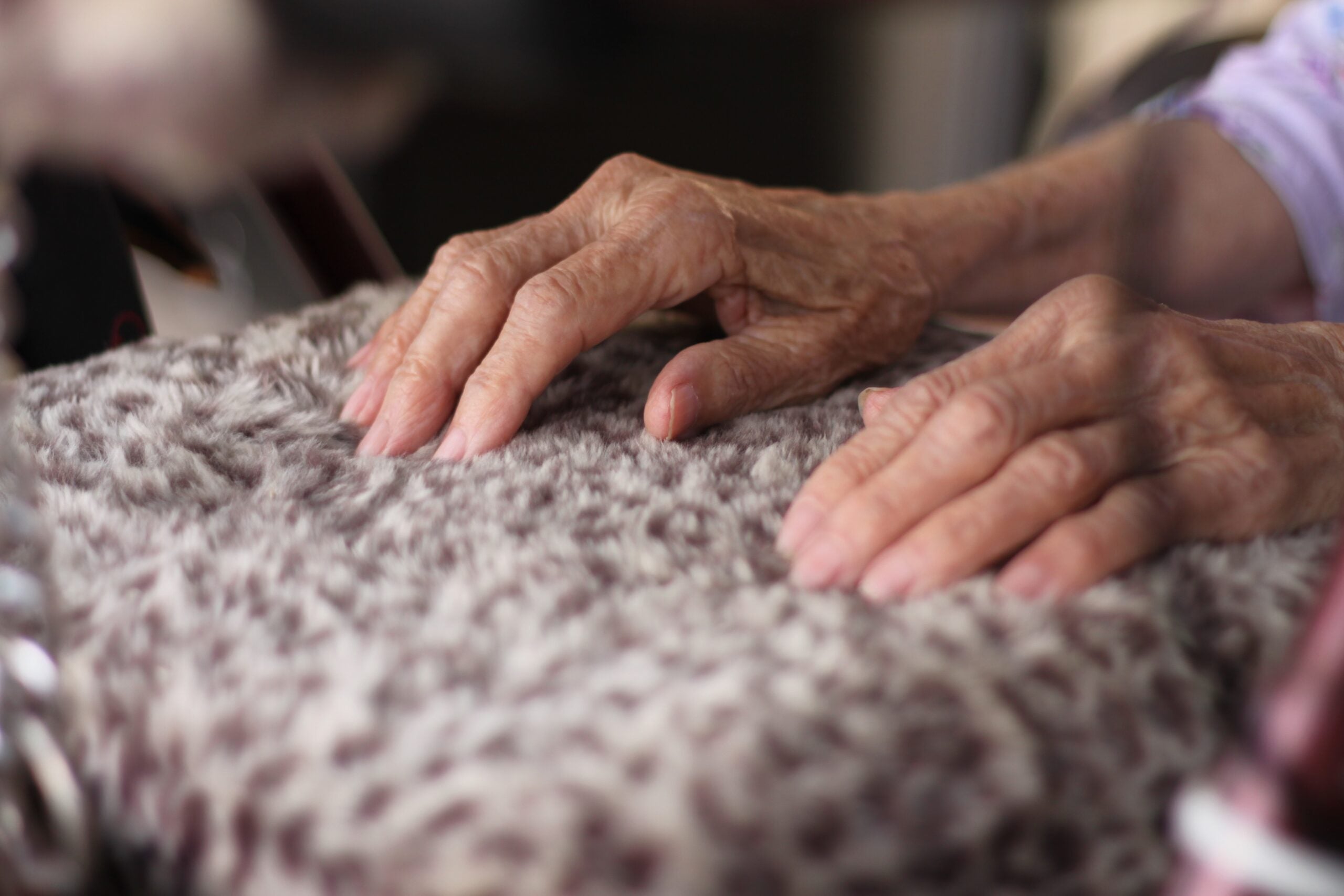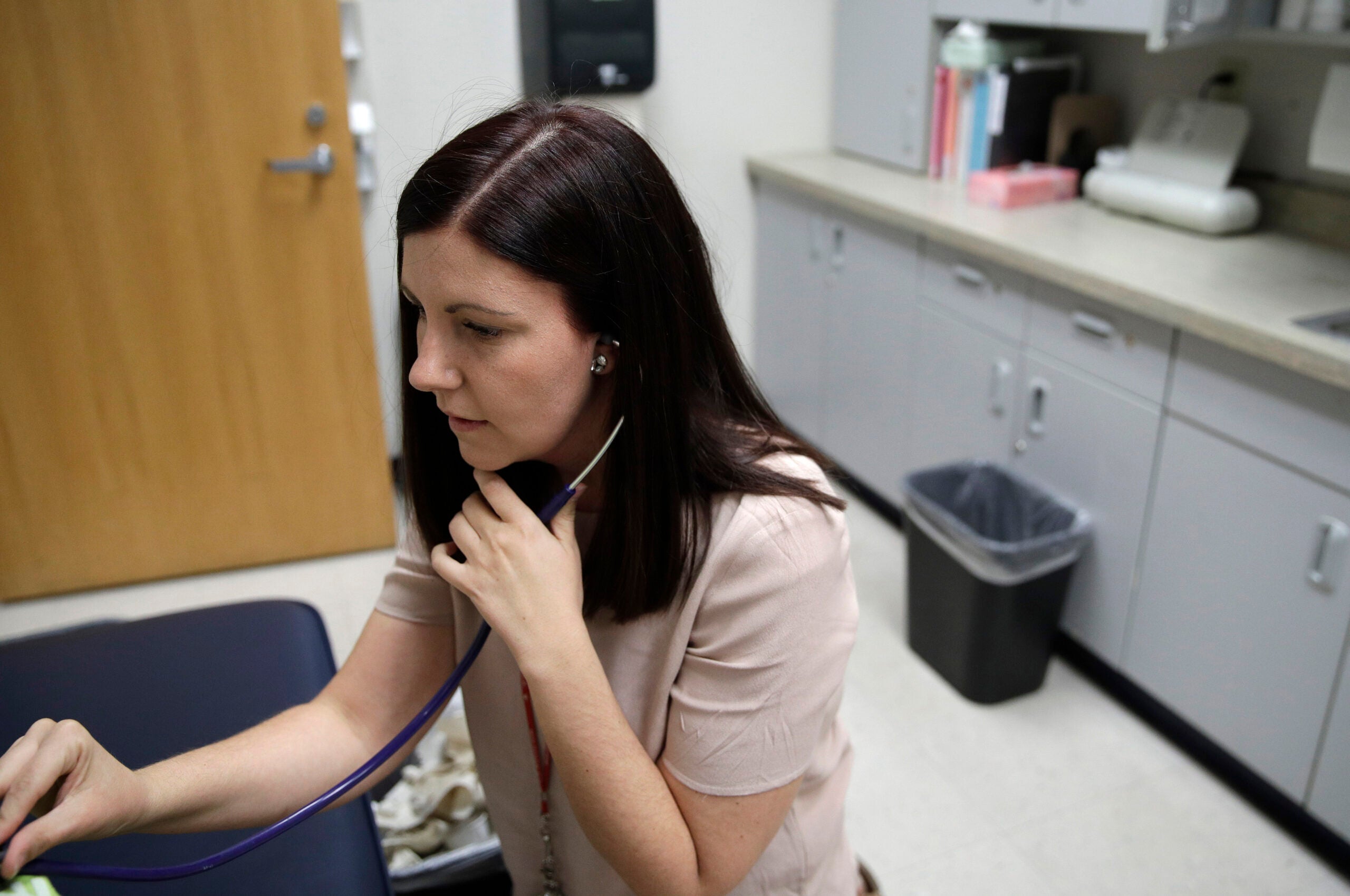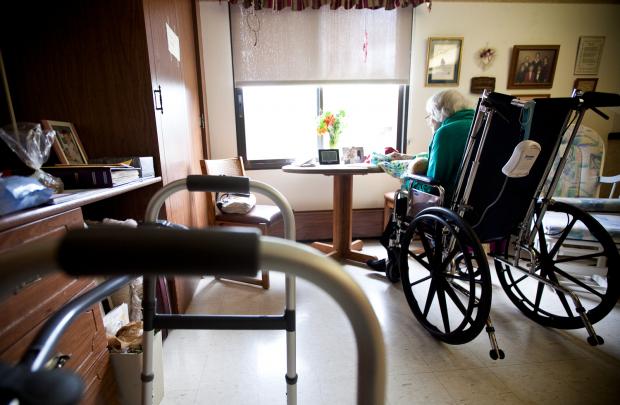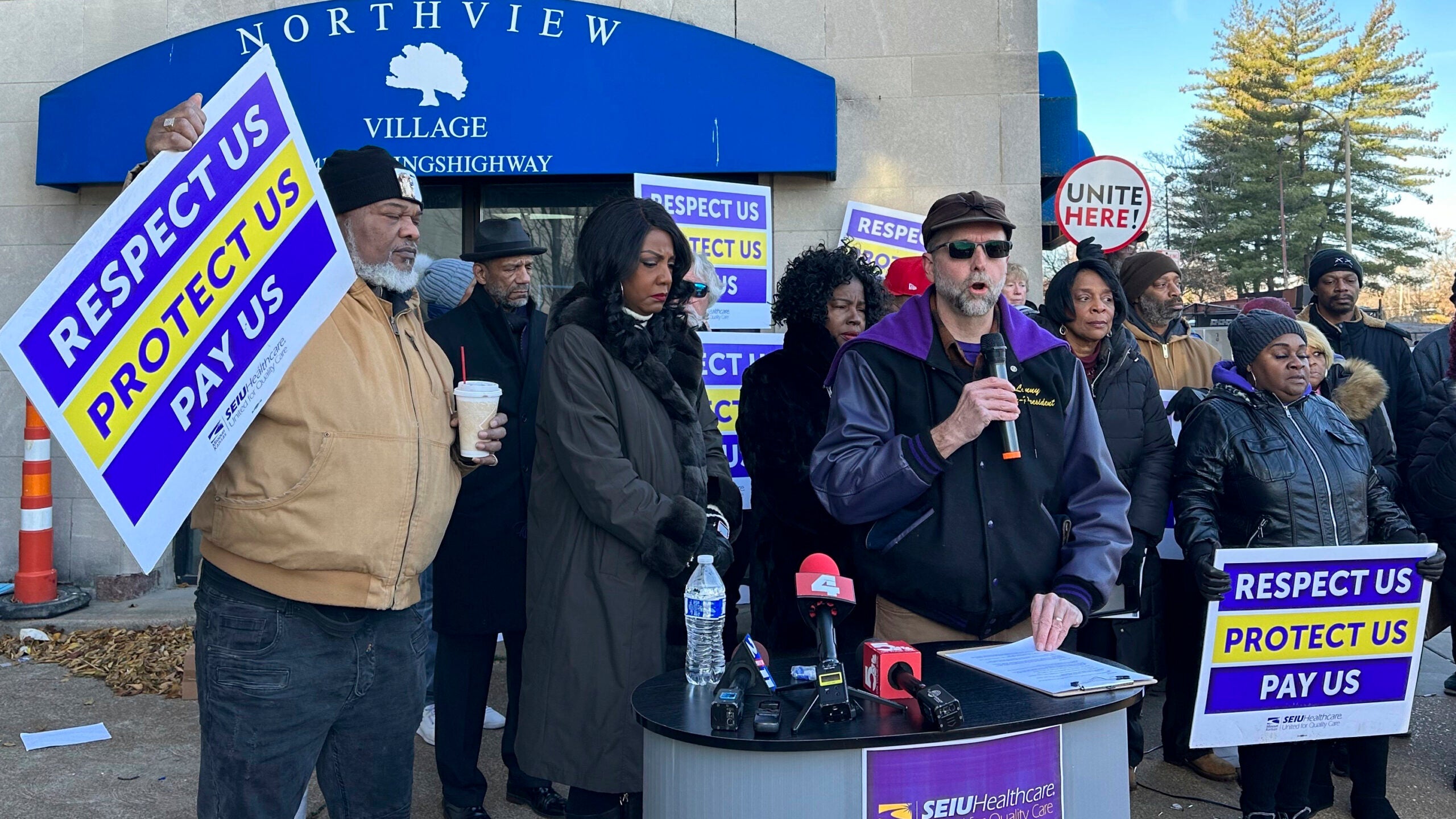Federal data shows staffing at some nursing home facilities across the country is low and may have been overstated for years in Wisconsin and other states.
Nursing homes report staffing levels to the Centers for Medicare and Medicaid Services, and now the federal agency is verifying the staffing through payroll records.
Barbara Bowers, associate dean for research at the University of Wisconsin-Madison’s School of Nursing, supports the new method to assess the number of employees providing care because it’s more accurate.
Stay informed on the latest news
Sign up for WPR’s email newsletter.
“Sometimes it’s deliberate but a lot of times they just don’t keep track of it,” Bowers said of facilities self-reporting.
It’s also important, she said, to have the right mix of staffing including registered nurses, licensed practical nurses and nursing assistants. Nursing homes must have a registered nurse for eight hours a day and a licensed nurse at all times.
“Outcomes are tied to staffing,” said Bowers, who has studied nursing homes. “You might be able to achieve good outcomes in some cases with less staff but it affects quality of life.“
The government does not require a certain number of caregivers per patients at a facility. On weekends employee workloads can double, according to records analyzed by Kaiser Health News and reported by The New York Times.
An interactive map produced by Kaiser Health News shows staffing levels vary widely in Wisconsin and across the country.
Nursing homes say quality isn’t based solely on staffing. There’s also staff training and health outcomes to consider.
“The best thing that any family looking to locate a facility for one of their loved ones can do to understand the care provided in any nursing home is to visit the center in person,” said John Vander Meer in an email. He’s president & CEO of the Wisconsin Health Care Association and Wisconsin Center for Assisted Living.
Sometimes the lack of adequate staff means food arrives cold. Or nursing home residents may have to wait to get out of bed or use the bathroom.
“A lot of older adults have challenges with continence. It’s an incredible indignity to wet yourself when the only reason you’re doing that is because you can’t get help,” Bowers said.
Bowers says she has talked to elderly nursing home residents who have fallen because they tried to climb over bed rails. Low staffing levels are not only potentially dangerous, but take a toll on staff morale and can lead many to high turnover. She said one of the reasons people leave the profession is they feel they can’t provide the level of care they feel they need to provide.
“These are good people for the most part … they pour their heart and soul into a job that involves heavy physical tasks and pays less than you can make at McDonalds,” said Bowers.
In studying why people quit nursing home jobs, Bowers recalled a certified nursing assistant who was distraught because she had forgotten about an elderly woman on the toilet. The caregiver had left momentarily to do another task and only remembered after she had left work.
Short staffing also can inhibit continuing education if there’s no one to fill in for you when you’re gone. Bowers said the nursing school has done workshops for certified nursing assistants around Wisconsin and a lot of them who had been working 10 or more years had never been to an education program before.
“There’s a hole in the bottom of the boat here. We can get people. We can’t keep them. So pay, yes, is an issue but it’s not the only issue. There is poor supervision and a lack of training that would allow people to develop themselves professionally,” said Bowers.
One of the biggest challenges, she said, is working with those who have dementia and dying patients.
“Those aren’t easy things to do,” said Bowers.
Wisconsin continues to face a shortage in frontline caregivers even though the Legislature increased Medicaid reimbursement for nursing homes in the 2017-19 state budget.
Providers have also worked with the state Department of Health Services to create the WisCaregiver Career Program, which is designed to recruit, train, test and retain 3,000 new certified nursing assistants to the profession.
Wisconsin Public Radio, © Copyright 2024, Board of Regents of the University of Wisconsin System and Wisconsin Educational Communications Board.






